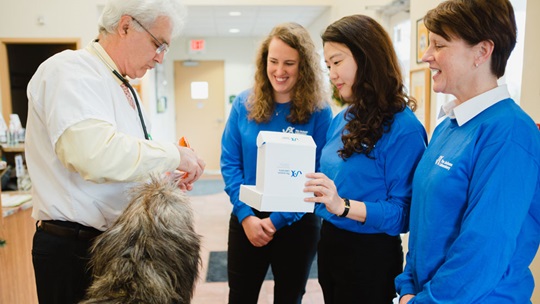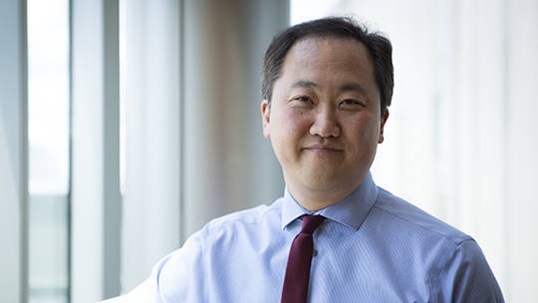At The Jackson Laboratory (JAX), we are committed to searching for cures for human disease, and we’ve asked some unusual partners to help us: man’s best friend! By researching canines, we not only help humans, but dogs too.
The Tallwood Canine Cancer Research Initiative at JAX is the first of its kind: it will create a biobank of fully sequenced dog tumors that scientists around the world can use in their cancer research. Human and canine cancers are very similar, and our goal is to use insights we learn about the mechanism of canine cancer genetics to help develop future predictors and treatments for humans and dogs too.
This major research initiative was made possible with a $500,000 gift by an anonymous donor from Connecticut.
JAX is working with veterinarians across the country to collect tumor samples from canine cancer patients whose owners volunteer to participate in the program. Comparing cancerous mutations in dogs of the same breed and across mixed breeds is expected to yield crucial information in better understanding cancer’s roots and aid the development of future treatments. The program was launched with the help of Patrick, a happy and healthy Irish wolfhound whose blood sample was the very first one used in genome sequencing for comparison to cancer genomes of sick dogs.
Will you help us find cures for human and canine cancers?

Come by the JAX table to see Patrick, our Bark for Life mascot, and learn more about Canines Helping to Cure Cancer through JAX's Tallwood Canine Cancer Research Initiative.

Patrick, an Irish wolfhound, visited his veterinarian and Jackson Laboratory scientists Susan Mockus, Won Yeong Kang and Eliza Cerveira.

Patrick, an Irish wolfhound, recently visited the TCCRI team at The Jackson Laboratory for Genomic Medicine in Farmington, Conn.

This box holds our tumor sample collection kit. Veterinarians interested in participating in this research initiative can email tccri@jax.org for more information.
Get more information
For general inquiries about our research and how to participate in the program, please contact us at tccri@jax.org.
Canines Helping to Cure Cancer: In the News
- Hartford Courant Op-Ed: At Jackson Labs, Dogs Could Hold The Key To Curing Cancer
- The River 105.9 Interview with JAX Professor Charles Lee
- GEN News: JAX research effort studies canine cancer in dogs and humans
- AACR: Canine research to benefit dogs and humans alike
- Newsweek article: Sick Puppies: How Dog Tumors Could Help Find A Treatment For Human Cancer

